Tuesday, 5 April 2011
Diamonds and Clubs
When I was living in Northern Uganda you might have justifiably felt sorry for my cultural deprivation. The music life was what the kids created in chapel; the theatre scene was our back-of-the-truck drama group; the art-scape limited to what we could do with a few coloured pencils. No wonder I got parcels containing theatre reviews, ballet brochures and opera DVD’s.
But Jo’burg is a very different part of Africa. Here there is culture in spades – not to mention the diamonds and clubs of the title. For example, in the last 2 weeks – admittedly an especially busy period – I have managed to attend a Shakespeare play, a musical, a book launch, a comedy show, a rock concert and a classical concert. The week ahead promises an opera, a film festival, a new drama and a passion play.
The two concerts were neatly linked by the name ‘diamond’. The classical concert was organised by Fr Russell at Trinity Church to mark the installation of the striking new Stations of the Cross that he had commissioned. Far from being the dark, recessive, predictable images that hang round the sides of most Catholic churches, a local artist Joseph Capelle has produced arresting and sometimes disturbing paintings in bright and bold colours. In tune with art designed to shock rather than soothe, the performance chosen was of Haydn’s ‘Seven Last Words from the Cross’ and it was given by a local string quartet led by the brilliantly (!) named Samson Diamond. Two of the group had been members of the famous Soweto String Quartet and, after music studies overseas, returned here to contribute to the surprisingly good classical music life of Jo’burg. To be fair, this is not London or Berlin or New York. But it would not play second fiddle to somewhere like Leeds or Boston: a reasonably good city orchestra, a decent level of music training, and smaller groups often linked to churches or universities giving creditable performances of repertory works. Certainly not a starvation diet.
From the sublime to the not quite ridiculous, the following night I was back in the mega-stadium Soccer City for a concert by Neil Diamond! I am not afraid to vaunt my 1970s credentials and admit how much I enjoyed that ‘beautiful noise coming down from the streets’. And if I was up on my feet, swaying from side to side in time to ‘Sweet Caroline’, it was a madness I shared not only with a very impressive septuagenarian but with 52,000 of his fans. The stadium was packed –in part, as you might expect, with people of an older generation (we saw at least two walking sticks though no zimmer frames!). However, there was also a surprisingly young crowd of 20- and 30-somethings, drawn in to the cult by the fact that a famous Afrikaans pop star does a lot of Neil Diamond cover versions.
That explained the age diversity in the audience. But it also explained the lack of colour diversity. There may have been 52,000 people but I swear – if you did not count the people selling drinks and one of the backing singers – I was the only non-white person in the entire stadium. The last time I experienced cultural apartheid like that was when I went to Glyndebourne.
We do get a fair share of big name concerts here – Andrea Bocelli and U2 both dropped in as part of their world tours; we are promised Michael Bublé and Kylie Minogue before the end of the year. It is at least a way of filling some of the magnificent stadia that were built for the World Cup. And of course it enabled Bono to demonstrate again how much he knows and cares about the real Africa – as exemplified by the charming advert in the Economist where he is shown as having flown his private jet into a desolate field in ‘Aaafrica’, with nothing between him and the hardships of the bush but a selection of Louis Vuitton luggage. My brother would have been proud!
The lack of diversity at Neil Diamond was, I am afraid, not untypical. The exceptions to this are noticeable, when they happen. For example, the comedy show that I attended was by an excellent young parodist called Trevor Noah (who delivered a hilarious skit of President Jacob Zuma trying to ‘friend’ Barack Obama on Facebook). His audience was an amazing cross-section of white, black, Indian and coloured (to use the local categories). (See also my blog on www.iol.co.za for more on this).
But all too often I find myself at a show where the audience is almost entirely white; or at one where the audience is almost entirely black. As anywhere in the world, particular performers and particular categories of culture have their groups of followers. It is just that, this being South Africa, by and large the dividing lines are lines of colour.
The same is true of the club scene. I have the good fortune of living 5 minutes’ walk from 7th Street, one of the best known night spots in the city. You will understand, I hope, that even if other middle-aged Church workers are tucked up with their cocoa and a copy of ‘The Tablet’ by 10pm, I feel obliged as your intrepid reporter to savour the delights of the local night life. We have great bars and clubs with great names – Ratz, Liquid Blue, The Loft, Lemon8, the Cats Pyjamas. And each has its own vibe, and clientele, and tastes, and music. But it is all too often the case that I look around and notice that I am the only non-white person in a very white crowd; or equally the only non-black person in a very black crowd. Or I might visit the Shebeen (informal bar) that my friend Stephen has attached to his home and, since it is in a coloured area, you can guess who is there. Whilst that does not surprise me in white areas like Rosebank (where I never go) or in black areas like Soweto (where I often go), it is unfortunate that it happens here in Bohemian Melville. The street may contain great diversity but it is a salad not a soup.
My sense of adventure means that I am undaunted by this. I blithely wander into places that other Jo’burgers would avoid, using my accent as a passe-partout that excuses any social gaffes I might inadvertently make. And, so far at least, my head has remained connected to my shoulders.
But for all that I still mostly seek out Jo’burg versions of the kinds of culture that I would enjoy in London: plays, musicals, dance performances, gentle concerts. Despite the cajoling of my friend Adi, I have yet to more than dip my toe into the most vibrant part of the arts scene here which is contemporary African music. For, just as Jo’burg has asserted itself as the commercial capital of the continent, it is increasingly laying claim to being the cultural capital with musicians, composers and dj’s from across Africa converging on the Rand. Though he is not himself musical, even my housemate Ulwazi has managed to tap into this world through his circle of friends. There has recently been a steady stream of bright young things eating and drinking on our terrace and discussing the latest club date/ gig/ promo/ recording session with which they have been involved.
Much like Lady Bracknell I hang around the edge of these young sets, picking up snippets of their conversation and trying not to sound too desperately out of touch. I wanted to tell them that my recent musical highlights have been a singer from the 1970s and a composer from the 1770s! But I am not sure they would understand. Ah well, Song Sung Blue….
Subscribe to:
Post Comments (Atom)


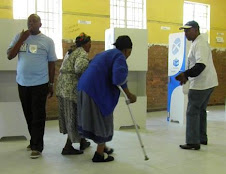











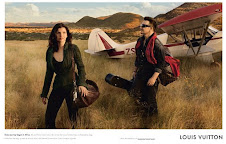


















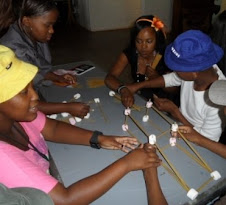














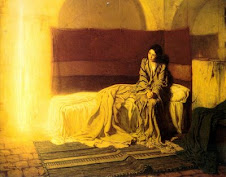













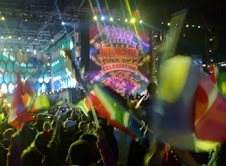






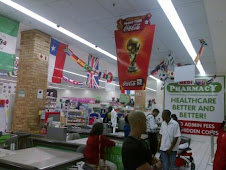






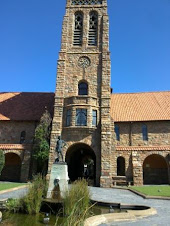











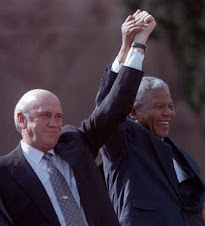.jpg)


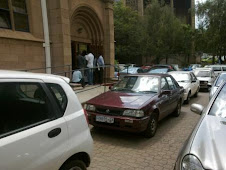





No comments:
Post a Comment
Note: only a member of this blog may post a comment.